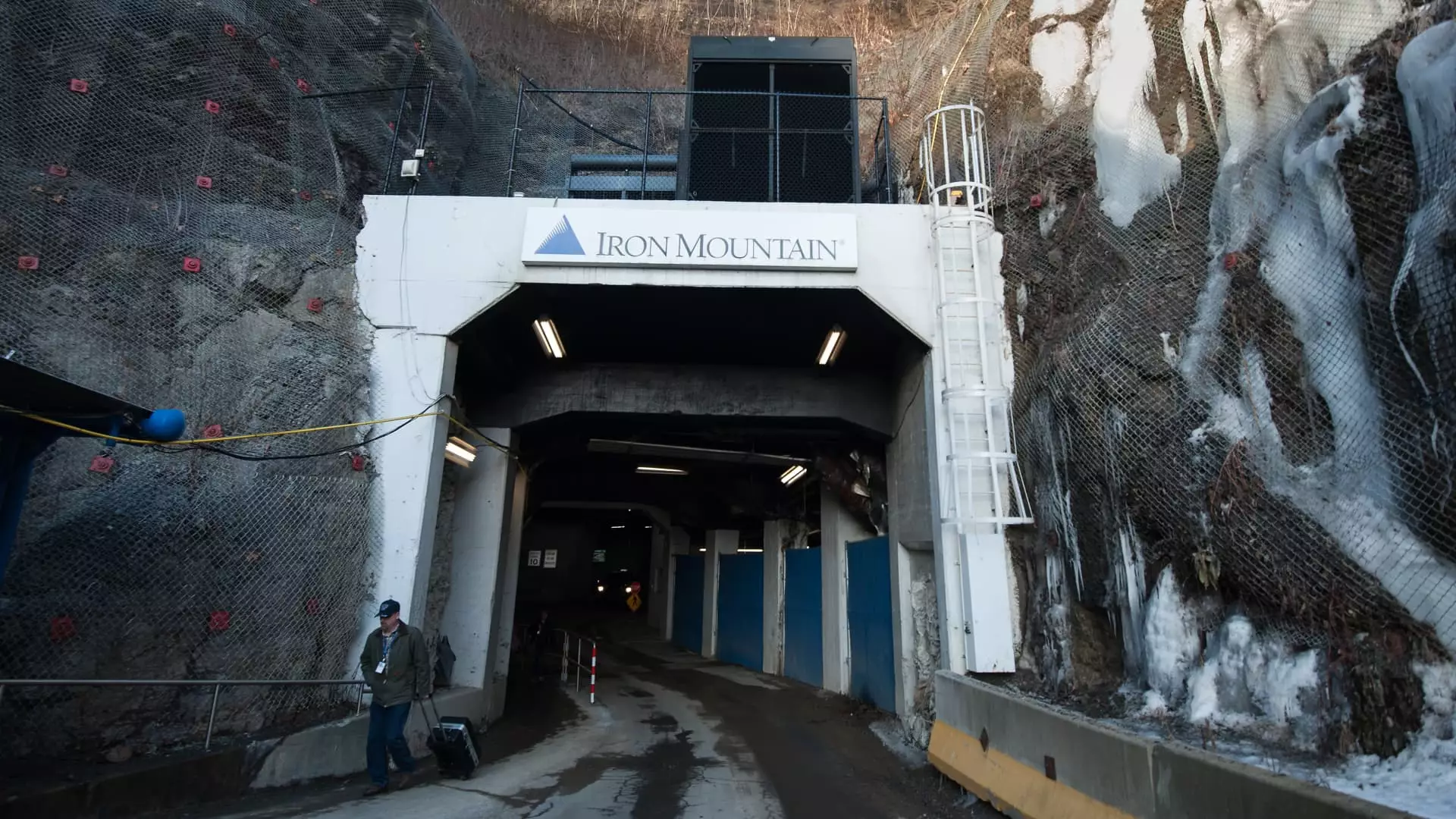In a striking display of rhetoric and a critical look at government inefficiency, Elon Musk recently made headlines during a meeting with President Donald Trump in the Oval Office. This encounter sparked discussions on the way federal agencies handle essential documentation and highlighted Musk’s initiative, the Department of Government Efficiency (DOGE). The implications of Musk’s comments affected not only Iron Mountain, the organization responsible for significant government document storage, but also raised broader questions about federal efficiency and potential opportunities for innovation.
The Iron Mountain Quandary
Musk directed attention toward an obscure but crucial facility in Pennsylvania, a mine operated by Iron Mountain that serves to store various critical documents, including retirement paperwork for federal employees. Musk’s vivid characterization of this facility as a “time warp” reflects his view that federal operations are stuck in outdated practices. He articulated a concern that the elevator speed at this mine restricts the government’s ability to swiftly process retirement applications, painting a picture of bureaucratic sluggishness that resonates with a growing public frustration regarding governmental ineptitude.
Iron Mountain’s business model heavily leans on such contracts, generating varying income streams depending on how well it modernizes its operations. However, the company faces scrutiny that stems from Musk’s comments, which have ignited concern among shareholders about the viability of these contracts in the context of a potential reorganization within federal agencies. The stock of Iron Mountain was immediately impacted, with a substantial dip observable shortly after Musk’s outburst, demonstrating how commentary from influential figures can lead to significant market unease.
The dichotomy between Iron Mountain’s earning potentials from physical document storage against its digital initiatives cannot be overstated. CEO Bill Meaney acknowledged during an earnings call that while the company garnered $130 million from digital solutions, the physical documentation side generated a meager $10 million. This stark contrast indicates a critical need for modernization if Iron Mountain aims to maintain a competitive edge amidst evolving federal needs. It also underlines a fundamental shift required in how federal documentation is handled, pivoting from cumbersome physical storage to dynamic digital solutions.
Within the broader scope of governmental operations, Iron Mountain’s strategy aligns beneficially with implications Musk’s DOGE aims to bring into focus. The necessity for increased efficiency, particularly with the trend of digitizing data, suggests that firms like Iron Mountain could experience growth despite Musk’s critical viewpoint. The appreciation of Iron Mountain’s efforts in digital transformation suggests a strategic path forward, highlighting where real opportunities may lie within the layers of bureaucratic reform.
Musk’s comments have placed a magnifying glass on the federal government’s methods of document storage and processing. Such scrutiny could lead to a reassessment of existing contracts and a potential shift towards organizations that emphasize more progressive practices. For Iron Mountain, losing government contracts could mean a significant shakeup unless it continues to innovate its offerings seamlessly, maximizing efficiency in response to increased scrutiny.
Analysts have since weighed in, interpreting the stock’s downturn as an overreaction. The assertion that Iron Mountain is not overly reliant on any single customer resonates with an understanding of its diversified income stream. If the government were to withdraw, termination fees could offset the immediate financial impact, suggesting resilience in Iron Mountain’s business model. The viability of the company’s niche for physical document storage, especially given legal requirements for record retention, should provide a grounding view amid volatile market reactions influenced by Musk’s statements.
A Path Forward: Embracing Innovation
Musk’s vocal challenge to federal inefficiencies has undoubtedly opened a dialogue about modernization within government operations. While his frustrations concerning Iron Mountain highlight real issues present in outdated methodologies, they also create a fertile ground for innovative solutions within the industry.
Organizations like Iron Mountain must pivot strategically to harness the momentum from this criticism toward transformative practices, turning potential adversities into opportunities within an evolving landscape. As the government continues to prioritize efficiency, strategic partnerships with firms willing to lead this change will likely define future operational success in a more digital and streamlined federal framework. The need for rejuvenation and adaptability stands clear, signaling a significant evolution in a landscape historically tied to tradition.

